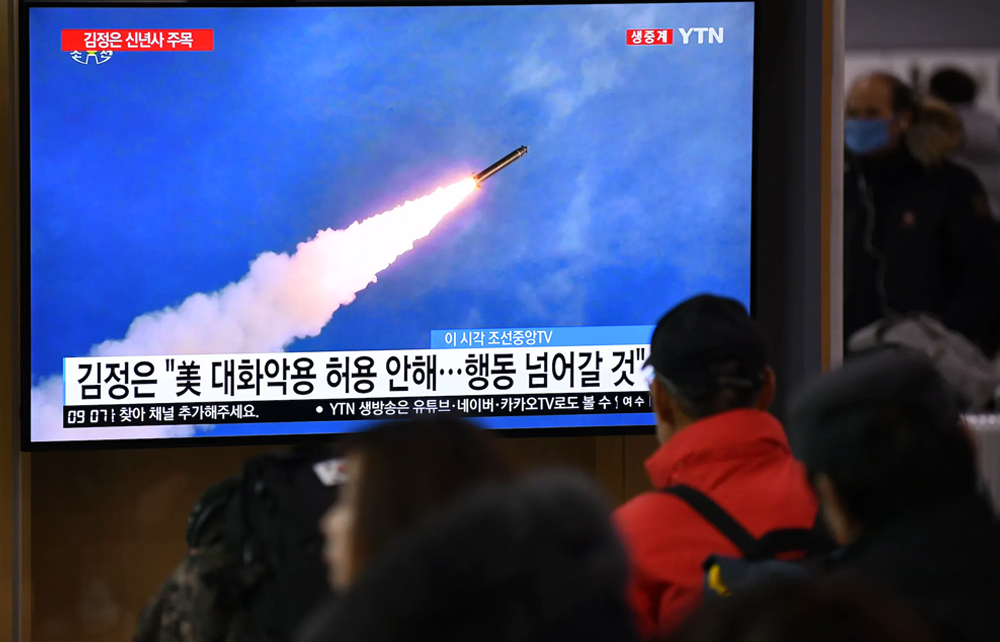It was a new dawn, a new day and a new North Korean missile test. The land of the morning calm — as South Korea is affectionately nicknamed — awoke to the launch of the fifth North Korean ballistic missile in ten days.
Over the past ten months, the international community has become accustomed to a growing number of North Korean missile launches, of an increasingly diverse range of missiles. Kim Jong-un’s determination for North Korea to become a nuclear state, and be recognized as such, is only heightening.
Last night’s launch was of a Hwasong-12 intermediate-range ballistic missile. The world had become familiar with North Korea’s missiles, including intercontinental ballistic missiles falling into the disputed waters of the East Sea (known by Japan as the Sea of Japan). This time, however, the missile flew over Japan into the Pacific Ocean, activating Japan’s alert system telling residents to take shelter: a feat last achieved five years ago. With a range of 4,500, it was the longest demonstrated range of any North Korean missile. It has the potential to strike the US-territory of Guam, home to a strategic US naval base.
Why launch a missile now? Over the past week, the US, South Korea and Japan have conducted anti-submarine drills off the east coast of the Korean Peninsula. Joint military exercises with US aircraft carriers, including the nuclear-powered USS Ronald Reagan, also took place during Kamala Harris’s visit to Seoul on September 29.
A North Korean provocation frequently occurs when the US and South Korea stage defensive military exercises. The current international environment is notably in Pyongyang’s favor. As Russia’s war intensifies, the focus remains on Ukraine.
Launching missiles now means that North Korea has a high chance of escaping sanctions. The UN Security Council is currently in a state of paralysis and a weakened Security Council benefits Kim. Divisions between western powers and former Cold War enemies means that Russia and China are now more reticent than ever to side with the West and support sanctions on North Korea. Only in May, China and Russia blocked US-led proposals for further sanctions on the country given its renewed ballistic missile tests earlier this year. Although claims of a coming strategic triangle between Moscow, Beijing and Pyongyang are exaggerated, we should not discount a future North Korean rapprochement with the two states if doing so benefits North Korea. Whether it’s cash for ammunition — despite North Korea denying having exported weapons to Russia — or merely support in the form of solidifying opposition against the US and its allies, the hermit kingdom will do anything within its remit to exploit the current international environment in its favor.
Who will stop North Korea? For all its increasingly vociferous opposition to the US, today’s missile launch demonstrates how China is not willing to die on the North Korean hill. Many observers thought that North Korea would restrain from provocations until after the opening of the 20th People’s Congress of the Chinese Communist party on October 16, in which Xi Jinping will likely be re-appointed to a record third term as general-secretary of the party. Yet, that Pyongyang has chosen to test a ballistic missile nearly two weeks before this critical event shows that not even its Cold War benefactor can deter its nuclear ambitions. Living with a nuclear North Korea is no longer a prospect, but a reality.
This article was originally published on The Spectator’s UK website.


















